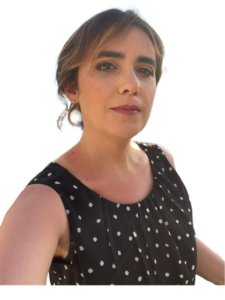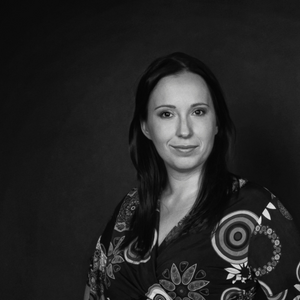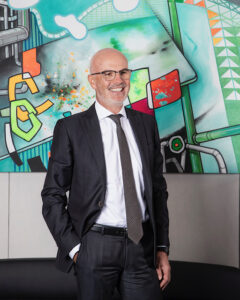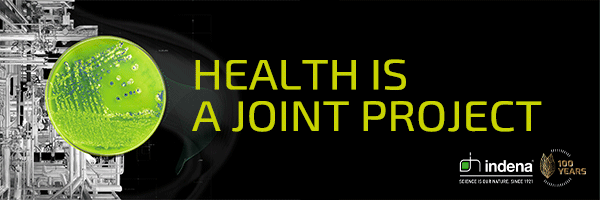Pharmaceuticals
The women behind PROCOS 19th May 2023
Female mentorship and empathetic management have been key factors in the rise of full-service CDMO, PROCOS SpA. This is a wholly-owned subsidiary of the Japanese company, CBC Co Ltd Group, specialising in the development, scale-up and production of Active Pharmaceutical Ingredients (APIs), advanced intermediates and related services for the pharmaceutical industry.
We approached PROCOS, to discuss their views on Women in Science and the impact of mentorship in the 21st century. This company is demonstrating an in-built inclusive and emphatic approach. Employees are encouraged to take the initiative, make contributions and continue learning all within a friendly and positive environment. In fact, PROCOS’ management attributes much of its recent successes and client growth to this people-centric philosophy.
We spoke to seven women to discuss their thoughts on working in the pharmaceutical industry in the 21st century.
 Dr Annalisa Airoldi, R&D Senior Researcher, Analytical Development
Dr Annalisa Airoldi, R&D Senior Researcher, Analytical Development
Q: What types of skills do women in the pharmaceutical industry need to develop?
A: The education (excellence academic curriculum and technical expertise) is a very important starting point in an environment in which the level of required technical skills is always increasing. Nevertheless, despite the position you are in, it is very important never to stop learning, both from experience and from continuous scientific updates.
In the field of R&D, every day is a challenge: the resilience to never stop finding new technical solutions and not be knocked down by failures is fundamental.
According to my experience, the collaboration with colleagues, which leads to open-mind brainstorming and effective teamwork, is the key to solve complex problems and build up a constructive working environment.
Besides the education and technical knowledge, ‘soft skills’ play an important role to determine your career path and position in the company; the capacity of building relationships, negotiation, critical thinking, effective communication.
In management positions, besides good leadership skills and empowerment, women should not be afraid to show some soft skills (in which they are stronger than men!) as empathy, inclusiveness and kindness.
The focus of the leaders on relationships through careful listening, understanding, empathising and supporting, will enable people to feel their work is valued. Moreover, the persons will feel respected and they will be able reach their maximum potential and do their best at work and in their own career.
Q: What advice would you give to young women aspiring to follow your path?
A: My main advice to young women is to understand well what they really like to do, since in life you spend a lot of time at work. In my opinion, the hard work and resilience needed to follow a chosen path cannot be achieved if you are not passionate about your job.
Don’t be concerned about being a woman; if you work hard enough and you have your own voice, you will get a seat at the table as main actress of your own play.
Don’t concentrate on yourself; the job is not a competition, but it is a pathway that should lead to reach common objectives. Be available to fully support your colleagues and your collaborators, and you will be recognised as a focus point down the years.
Q: Who inspired you, as a younger woman?
A: In the first years of my career, I worked in a multi-functional team led by a great woman. Besides the valuable technical expertise, I admired her leadership and communication skills. She was the only woman director in the department and her integrity and credibility were very strong. Her opinions were taken into great consideration due to her expertise and credibility, built through years of hard work. Her capacity to coach and inspire young people was an example for me.
Q: To what do you attribute the growth and increased focus on STEM?
A: Nowadays, a robust STEM education is becoming more and more important to our economy. Employment in STEM is projected to grow in the years ahead and healthcare occupations, which generally require a strong STEM background, are projected to grow even more.
STEM education gives people skills that make them more employable and ready to meet the current labour demand.
Technology prepares young people to work in an environment full of high-tech innovations and science gives learners an in-depth understanding of the world around us, thus preparing professionals who can transform society with innovation and sustainable solutions.
Furthermore, each STEM component brings a valuable contribution to a well-rounded education and to important life skills: critical thinking, capacity to analyse information and problem-solving abilities.
 Dr Paola Allegra, Quality Assurance Manager
Dr Paola Allegra, Quality Assurance Manager
Q: What types of skills do women in the pharmaceutical industry need to develop?
A: Personal experience and skills are always crucial for the development of a successful professional career in any type of industry, but for a pathway in the pharmaceutical sector I would say that key can be the logical and problem-solving skill, objective thinking, attention to detail, an open-minded approach to new ideas and concepts, along with project management and proclivity to learn quickly. Moreover, flexibility will allow to stay at pace with a highly regulated sector that changes over time.
Q: What advice would you give to young women aspiring to follow your path?
A: Study hard, be passionate and ambitious and pursue your own ambitions.
Q: Who inspired you, as a younger woman?
A: I have always observed the people with more experience that I met from time to time in my journey and took examples and inspiration, and this allowed me to develop my own personal abilities and approach to daily challenges in the workplace.
Q: What career path led you to this prestigious role at PROCOS SpA?
A: I have always been attracted by science and scientific subjects, and I graduated with a degree in biology. Opportunity to enter the pharma industry came by chance, when I took a temporary position in a pharma company and I realised I had found what I wanted to do. Since then, I have tried to pursue all the opportunities that allowed me to learn and build a solid background to continue my path.
 Dr Chiara Bovio, QC Laboratory Manager
Dr Chiara Bovio, QC Laboratory Manager
Q: What types of skills do women in the pharmaceutical industry need to develop?
A: I think women have only to put their own innate characteristics in their everyday work. Women already have excellent observational skills and attention to detail, an enquiring mind and analytical, methodological problem-solving skills. These are all very important skills that could enable women to promote the growth of their role in the pharmaceutical industry.
Q: What advice would you give to young women aspiring to follow your path?
A: Never stop and don’t wait for perfection because you’ll never be 100% ready. If you have a good opportunity in front of you and you find it interesting enough catch it! Follow your instincts, without being afraid of making mistakes.
During time at university, take the chance to follow training courses that you find useful for your work, even if they are not part of your study program. Be curious and be an open-minded person.
Q: Who inspired you, as a younger woman?
A: I was fascinated by sciences since I was a child. It was natural sciences at the beginning, but during secondary school I was attracted by chemistry. During a chemistry lesson, the teacher told us about a woman, Marie Curie, who dedicated all her life to science. Her thought followed me during the years. She said, “Life is not easy for any of us. But what of that? We must have perseverance and above all confidence in ourselves. We must believe that we are gifted for something and that this thing must be attained”.
This must be kept in mind: anyone has their own talent; it’s just a matter of discovering what it is and developing it.
Q: To what do you attribute the growth and increased focus on STEM?
A: Merging science, technology, engineering and mathematics, STEM helps us to solve the challenges the world faces today.
STEM subjects are focused on providing solutions to the concerns society has today. Human history has witnessed years of thoughtless exhaustion of natural resources. Such a lack of environmental education led to numerous challenges. These issues affect the health and well-being of all living organisms on our planet. Our environment needs protection. Thus, sustainability has become one of the most urgent aspects studied by STEM disciplines.
Young people are more worried about climate change than the older generation. As statistics show, 70% of those aged 18-34 is worried about global warming. STEM can answer their questions and it can teach them how to find the necessary solutions for sustainable development. Education is a powerful tool that ensures the rise of a STEM-literate society. Well-educated community members can find ways to work in a competitive world. They will use sustainable practices that do not harm nature. In the bigger picture, economic and social progress is strongly connected to the environment. We need to work our way to a sustainable future.
 Dr Rossana Carne, Marketing & Communication
Dr Rossana Carne, Marketing & Communication
Q: What advice would you give to young women aspiring to follow your path?
A: First, I must admit that my education is not related to STEM, but since 2015 I started working in the pharma Industry and, consequently, I linked my daily activities as a communicator with creative skills to the discipline of science.
Having said that, my advice to young women is to follow your own dreams and don’t fear the future. Nowadays, it’s extremely important to follow your own path, both in terms of studies and careers.
Sometimes it can be difficult, but if you don’t lose the curiosity and the passion everyone can reach their goal.
The sentence that better expresses the meaning of my suggestion comes from Japanese Anime Director Hayao Miyazaki, who said: “Many of my movies have strong female leads – brave, self-sufficient girls that don’t think twice about fighting for what they believe with all their heart. They’ll need a friend or a supporter, but never a saviour. Any woman is just as capable of being a hero as any man”.
Q: Who inspired you, as a younger woman?
A: I can’t say that I had a real source of inspiration, because since I was a child, I was inspired by books and humanistic studies. In fact, I didn’t graduate in chemistry or STEM, but in Oriental Languages and Social-Political Sciences.
Anyway, when I was young, I used to live in two worlds.
My first world was populated by real people and it was full of love; this world still exists and it’s populated by the members of my family.
My second one was, and still is, a world of books; I’ve been with Alexander the Great in Asia, on a train with Anna Karenina, in a Lab with Marie Curie and travelling in the wildest part of Japan with Tomoe Gozen.
Another important person who inspired me is Nikola Tesla, my favourite person in the science field, who changed my way of thinking towards my daily activities. Thanks to his approach I could find a way to face new challenges with new tasks and I also had a source of inspiration in terms of problem-solving, especially during difficult times in my life. Tesla’s passion became part of my own path as a fundamental approach for the current working philosophy to tackle difficulties in the pharmaceutical industry.
All these persons, no matter if real or not, guided me and made me a proactive person focused on reaching the goals not only for my ego, but especially for the future. This idea of being oriented in inspiring myself and other persons makes me think that, in some way, the future is mine.
Q: To what do you attribute the growth and increased focus on STEM?
A: First, these subjects are considered to be crucial for the development of any society, as they are sources of innovation and progress. Moreover, they provide a solid base for the development of critical thinking and problem-solving skills which nowadays are crucial to cultivate new ideas and for solving some of the critical issues of the entire world such as climate change and the recent pandemic. In this sense, we can easily say that STEM education goes beyond a school curriculum. It gives a skill set that governs how the young generation think, behave and will ultimately lead the world.
 Dr Monica Donnola, R&D Researcher
Dr Monica Donnola, R&D Researcher
Q: What types of skills do women in the pharmaceutical industry need to develop?
A: I think that a woman in the pharmaceutical industry must have the same skills that are required of a man and I’m referring to continuous learning, talent, passion in what is done and, in a positive sense, the ambition to try to continuously improve to always achieve one’s goals.
What perhaps a woman can bring, as an extra contribution, is empathy, a different point of view in facing daily challenges and, not to underestimate, the ability to know how to manage work and private life, because you can have it all, a job you love and a family.
Q: What advice would you give to young women aspiring to follow your path?
A: As a researcher who works in a world that is still predominantly ‘masculine’, I have more than one piece of advice to give to a young woman who would like to follow my path.
First, I would say to never stop wondering the ‘why of things’ and how they work, secondly, I would advise her not to be afraid to step out from the ‘comfort zone’.
Finally, another piece of advice that I would like to give, as a mother of a little girl, is not feeling the pressure to prove how able you are. Moreover, working more hours doesn’t always lead to the desired results. For that, it is necessary to work hard!
Q: Who inspired you, as a younger woman?
A: I can’t say that I had a real source of inspiration because since I was a child, I always thought that when I grew up, I would be a scientist and make new discoveries! As a child I have always been fascinated by science, medicine and astronomy even though growing up in high school I became so passionate about literature (I adored Dante Alighieri) that I almost quarrelled with my literature teacher when I told her I wanted to graduate in Chemistry and Pharmaceutical Technologies!
Obviously, I have never regretted the choice because of what I do now, that’s to say a researcher in the pharmaceutical world, as it’s close to my childhood dream.
Q: To what do you attribute the growth and increased focus on STEM?
A: I attribute this to the growing development of technologies because we live in a world that requires an increasing number of skills and areas of knowledge starting from digital ones, but not only those!
It therefore becomes essential to be in possession of those cognitive tools to master them. According to the University of Arizona we can expect an exciting year ahead in STEM education. Since 1990, STEM employment has grown 79% (9.7 million to 17.3 million) and computer jobs have seen a whopping 338% increase over the same period.
 Dr Damiana Gentili, Quality Unit Director and QP
Dr Damiana Gentili, Quality Unit Director and QP
Q: What types of skills do women in the pharmaceutical industry need to develop?
A: At first, I would reply that women need to develop the same skills as men. However, I do not believe it is true for several reasons; female and male attitudes are different for genetic and educational reasons, and therefore these skills cannot be easily predicted. As a woman, working in a science environment with people to manage, I identified the soft skills in which I was less capable and worked on them to be as more balanced as possible. The journey of my improvement started from deep knowledge and acceptance of myself, firstly as human being and then as a woman.
Q: What advice would you give to young women aspiring to follow your path?
A: Be yourself, be authentic. Be inspired by your limits and your talents alone.
Remember: “Only those who dare may fly” (Luis Sepúlveda, Chilean writer and journalist 1949-2020).
Q: What career path led you to this prestigious role at PROCOS SpA?
A: I am the Director of Quality in PROCOS SpA, a well-known chemical pharmaceutical company. I started in a pharmaceutical environment in quality at first before moving on to other roles in production and finance, and then I came back to quality management. I was always inspired in any role by the need to improve myself, learning new things and mastering complexity.
Q: To what do you attribute the growth and increased focus on STEM?
A: Today, especially in some countries, women rightly perceive themselves as unique individuals with plenty of opportunities. In this contest STEM are extremely stimulating subjects and one of the most interesting opportunities for personal growth.
 Dr Alicia M. Xaka, Associate Director – Business Development – US and Canada
Dr Alicia M. Xaka, Associate Director – Business Development – US and Canada
Q: What types of skills do women in the pharmaceutical industry need to develop?
A: This question really depends on which kind of position that a woman selects to work in because, just like any industry, pharmaceutical companies require skillsets across the board that will make their organisations successful. From the business development perspective, it is important to have some combination of education in Mathematics, Science or Business, especially Finance or Communications, an interest in sciences and technologies that are advancing healthcare for people, and a willingness to self-educate.
As a woman who has worked in the pharmaceutical industry over the last 15 years, supporting the development of both new and generic medicines, it is critical to be flexible, patient and persistent.
- Flexibility because challenges can arise from all areas of the program, including the chemistry or technology, the regulatory bodies such as FDA, manufacturing, environmental, logistics, product costs, market conditions and supply chain. As a business development lead, you are working across all areas and must be willing to roll up your sleeves, work alongside others who are the experts in each area mentioned, understand the needs and then strategically work through each issue so the program can continue to move along the development timeline.
- Patience because, well let’s face it, these programs take time. New medicines can take a decade or more to advance through the clinical trial process and regulatory approval, and generic developments can take three to seven years or more depending on the complexity of the drug and patent dates. In either case, we are talking of a marathon, not a sprint.
- Persistence because you must have the mindset to continuously move forward. It is a mentality that is so critical otherwise all the small roadblocks will stop you in your tracks. The business development person must be the driver of the team, the one who can see the big picture and rewards at the end. They must also be the one in it for the long run to see that it will be completed.
Q: What advice would you give to young women aspiring to follow your path?
A: Each person must develop their own pathway. I can confidently say this after watching how my own path developed over the years. My personal career is certainly unique and can’t be replicated because every progression made was driven by personal and professional pressures that forced me to take certain decisions. However, I would say that there are some key attributes about how a person’s professional career path can be both successful and rewarding:
- Find an area that interests you, whether it is driven by a personal matter, a cultural matter or a socio-economic matter.
- Become passionate about it and understand how your skillset can be effective in that matter.
- Find a product, a company or a group that is focused on the same interest as you and work with them. There is no better thing than working alongside others who share the same interests, passions or goals.
- Understand that no one person can do it alone; you must be able to work with others to find success. Having mutual support goes a long way.
- Find a mentor who shares some similar beliefs to you, ask questions and be open to learn something new.
Q: Who inspired you, as a younger woman?
- Luckily, throughout adolescence, I had many positive role models and supporters in my life, including teachers, coaches and family. Due to my upbringing and the fact that I moved around quite often, I believe I learned early on that it was important to grasp something from each relationship that I developed and to hold on tightly to the ones who are willing to invest in you. Do not take for granted anyone who has influenced or shaped your perspectives.
- During my education, I was inspired by my high school biology teacher, Mr Kohlhaas, who influenced me to enter into a science fair when I was the only girl interested and my anatomy and physiology professor, who encouraged me to be brave throughout a semester of working in the lab on animal and human cadavers. Gross!
- As a female athlete, I have had so many coaches along the years, who have given me the confidence to communicate, develop consistent habits and be a leader. I am thankful to Coach Dave Gurst, Coach Bridget Garrity and Coach Joe Inverso, who guided me in developing the basis for these skills prior to becoming a collegiate athlete.
- My Mother and Grandmother gave me the foundation for what it means to work hard and care for others. They always told me to study hard, go to college and be in a position to support myself financially. Today, I am able to juggle being a Mum and having a career because I have strong female role models to look up to, who believed in me and who have showed me how to maintain good composure under pressure, and manage the needs of others while still taking care of myself.
- Growing up, my dad taught me that ‘people are people’, no matter if they are the janitor or the CEO, young or wise. I had to learn to speak to anyone and that I could not let their status influence my ability to approach them. My dad instilled this in me as early as I could remember, perhaps eight or nine years old. If I wanted something, I had to ask for it myself, otherwise, I could not get it. It’s crazy, looking back on this life lesson, I truly believe that it is the single factor that differentiates my confidence level from the person next to me. Now, I am giving the same lesson to my daughters and I hope it will help them have confidence to approach and speak to anyone, no matter their status.
- Finally, my Grandfather, a wise, 97-year old man, who lived through our country’s (USA) hardest times, who served in the US military as a medic, a doctor, who delivered over 1,000 babies, and an inventor and patent-holder of some key medical device products used for women’s health, is someone who I looked up to and still do today. We always had a connection to each other through our love for technologies that help improve people’s lives. He wanted me to be a doctor, but my stomach just couldn’t take it, so I chose a profession working on the business side of medicines. Each of our curiosities opens the door for our weekly conversations. I am very thankful for his love and support throughout my life and for how our relationship has shaped my professional career.
________________________________________________________________________
 We also asked Enrico Zodio, CEO of PROCOS, to explain his experience in the company’s successful mentoring of women employees.
We also asked Enrico Zodio, CEO of PROCOS, to explain his experience in the company’s successful mentoring of women employees.
Q: Is mentorship an important component of professional development?
A: Mentorship plays a key role in professional growth because it encourages and enables a person’s professional or personal development. This is a milestone for PROCOS, it’s something we started developing many years ago because we would like to build employees’ skills to constantly enrich and empower them.
As a matter of fact, the mentors’ knowledge can help train and create a high-quality and productive workforce, while employees appreciate workplaces that encourage development and professional growth.
When we look back on PROCOS’ career history, the achievements of which we are most proud are seeing women in the company growing in key roles: in Sales, Purchasing, Accounting, R&D and Quality Divisions.
Our main goal is to see all of them mentored, coached, encouraged and proud of their career and life.
Q: How important is it to educate and mentor emerging leaders in the industry?
A: Mentorship programs for industry leaders are becoming increasingly widespread, because the link between high-quality industry leaders, high-quality mentorship and good achievement is undeniable. Providing support structures for these emerging leaders can only benefit them and generate good leaders in the industry.
There are many types of leaders: those who empower people, those who challenge the team and those who are focused on bureaucracy. None of this leadership is totally wrong or totally good, but in PROCOS we want to see the mentorship and the emerging leadership as tools to create teams that work together to achieve goals.
The importance of educating emerging leaders is now more critical than ever because we are living through dramatic change worldwide. For example, in early 2000, there were not many women in the pharma industry. Moreover, they were not placed in critical roles. However, now it’s totally different because the world itself has changed. Now women are becoming well-represented even if, in some industries, the numbers are still very low. What we want to pursue, as PROCOS, is to increase the mentorship of our women colleagues to become even more competitive than now.
Q: How does PROCOS SpA encourage the progression of more women in specialties/pharma/life sciences?
A: We are proud to say and remark that the secret of PROCOS’ success is the people we have on board. When we think about leadership across industries, we often associate it with a lack of gender diversity, but in PROCOS we try to enrich our colleagues every day. As a matter of fact, we work hard to break down any barrier and work towards gender equality in an organic and empowering way. We try to inspire women to reach their full potential by also placing them in key roles. The reason why we are doing this is very simple: when a woman has both the opportunity and knowledge to be a good leader, she’ll support, teach and encourage others to follow in her footsteps.
This is not just a statement, but it’s a fact: gender equality in the Italian pharma industry is a reality because 43% of employees are now women. In the last five years, employment has grown by 9% and the majority of new employees are young women. Moreover, in the last few years, many of them have broken the ‘glass ceiling’ and entered in key management roles as reported by the Italian Pharma Association ‘Farmindustria’.
Q: Is there anything we should look forward to coming up at PROCOS SpA?
A: PROCOS is an innovative and resilient company. We are proud of our team and our women leading key roles in the organisation. Everything we do is guided by our motto: Dream Together.
These are not simple or empty words, they codify our commitment to our employees, stating we must provide common benefits for everyone to reach a good work-life balance, an inclusive work environment where each person is considered as an individual and a place where diversity and dignity are part of our lifestyle in order to develop a workplace where merit and empowerment are well-recognised as a tool to lead the company.


